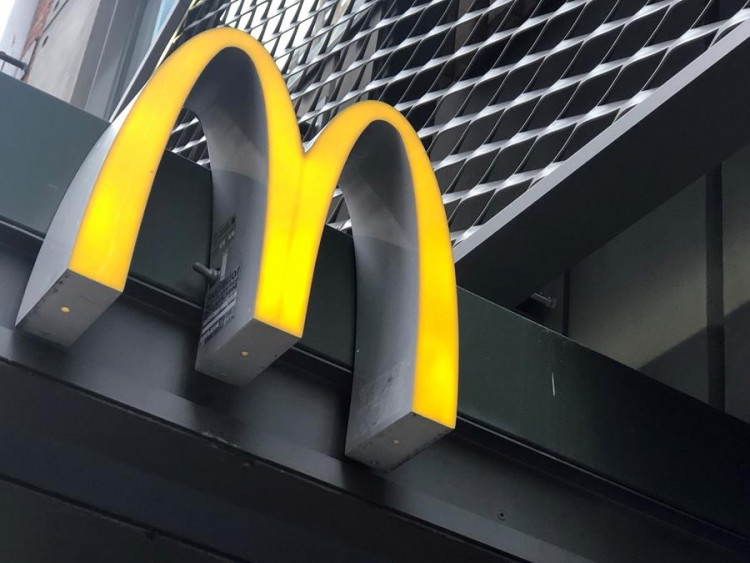McDonald's is grappling with the fallout from a widespread E. coli outbreak linked to its Quarter Pounder burgers, which has sickened dozens across 13 states and left one person dead. The outbreak, attributed to contaminated slivered onions in the burgers, has thrust the fast-food giant into a public health crisis and has led to the hospitalization of several victims, including a 15-year-old girl battling kidney failure.
Kamberlyn Bowler, a healthy and active teenager from Grand Junction, Colorado, was one of the victims of the outbreak. After enjoying several McDonald's meals, including her favorite Quarter Pounder with cheese and extra pickles, Kamberlyn began to experience severe stomach pain, vomiting, and bloody diarrhea. Her symptoms quickly escalated, and she was diagnosed with enterohemorrhagic Escherichia coli-associated hemolytic uremic syndrome (HUS), a life-threatening condition that affects the kidneys. Kamberlyn was airlifted to Children's Hospital Colorado, where she remains hospitalized and has undergone multiple rounds of dialysis.
"It's been a roller coaster from the time we got here," said her mother, Brittany Randall. "We're hoping for her recovery, but we don't know what the future holds."
Kamberlyn's family, along with dozens of other victims, plans to sue McDonald's, holding the company accountable for the severe health consequences of the outbreak. Their attorney, Ron Simon, a national food poisoning expert, has already filed lawsuits on behalf of other victims and expects the number of cases to rise. "It's going to be a lot more cases than the 75 reported so far," Simon said.
The Centers for Disease Control and Prevention (CDC) has confirmed that 75 people across 13 states have contracted E. coli after consuming McDonald's food, with many of the cases linked to the Quarter Pounder burgers. While McDonald's has removed the slivered onions from its menu and suspended its relationship with the supplier, Taylor Farms, the damage to the company's reputation-and to its customers' health-is already significant.
In response to the outbreak, McDonald's USA President Joe Erlinger issued a public apology. "We are sorry," Erlinger said in a video message. "We are committed to making this right and regaining the trust of our customers."
Despite the company's efforts to contain the crisis, the E. coli outbreak has cast a shadow over McDonald's third-quarter performance, which had initially been strong. The company reported quarterly earnings and revenue that beat Wall Street expectations, with adjusted earnings per share of $3.23 on $6.87 billion in revenue. However, concerns over the outbreak's impact on future sales have worried investors. The company's same-store sales in the U.S. rose by 0.3%, reversing a decline from the previous quarter, but traffic at U.S. restaurants turned negative following news of the E. coli outbreak.
Chris Kempczinski, McDonald's CEO, acknowledged the significance of the outbreak during the company's earnings call. "While the situation appears to be contained, it is certainly an important development," he said. "We are focused on addressing it and moving forward."
The outbreak could pose a significant challenge to McDonald's as it tries to reassure customers about the safety of its menu items, particularly as the company had already been facing competitive pressures in a challenging economic environment. McDonald's and its competitors have relied on discounts and promotions to attract customers as consumer spending in the restaurant sector has slowed. The company's $5 value meal and limited-time promotions have helped boost sales, but the E. coli incident threatens to erode that progress.
Looking ahead, McDonald's executives remain cautiously optimistic. They have taken steps to address the outbreak, including removing Quarter Pounder burgers from affected menus until the source of the contamination was identified and cleared. However, the potential long-term impact on consumer trust remains to be seen.
The situation has also drawn attention to the broader issue of food safety in the fast-food industry. With hundreds of thousands of people visiting McDonald's restaurants every day, ensuring the safety of its ingredients and supply chain is critical to maintaining public confidence.
For Kamberlyn and other victims of the outbreak, the road to recovery may be long and uncertain. While her family is focused on her health, they are determined to hold McDonald's accountable for the suffering caused by the contaminated food. "She went from being super healthy to possibly having kidney damage for her whole life," said Randall, expressing both concern and frustration over the ordeal.






